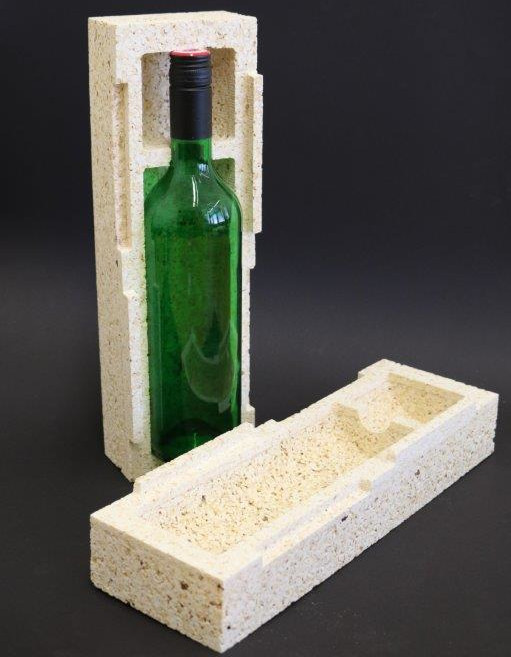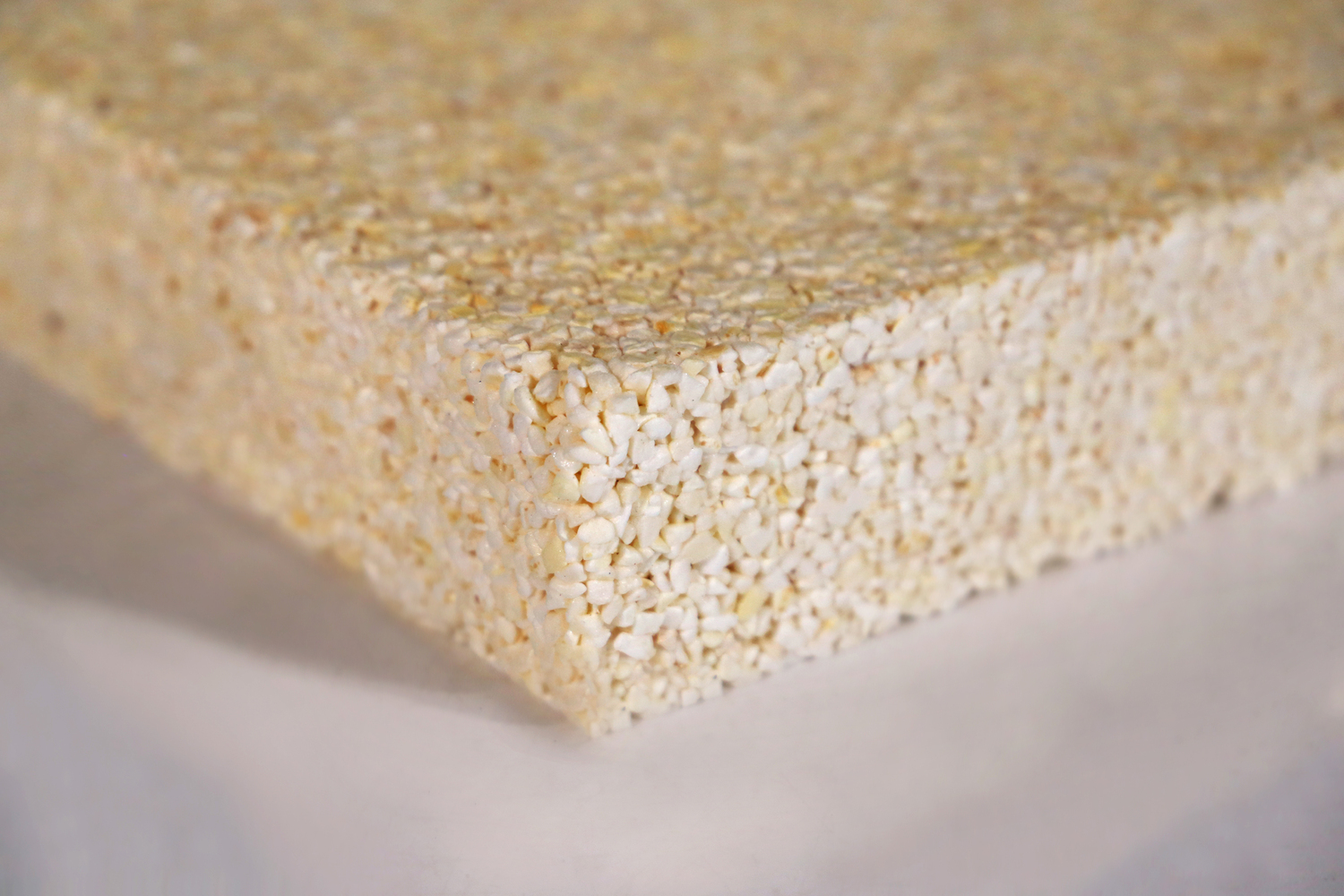Insulation using popcorn
Göttingen, 24.11.2021
MBM ScienceBridge GmbH today announced the successful negotiation and execution of a license agreement between the University of Göttingen and the Bachl group of companies.
Good exterior insulation reduces heating costs, which means lower CO2 emissions. Nowadays, sustainable natural insulation materials are already available for the interiors of buildings. But what does sustainability really mean? It means the material should be environmentally friendly and made from renewable raw materials, it must have good thermal insulation and fire protection, and it must be easy to recycle at the end of its useful life. The research group of Professor Kharazipour at the University of Göttingen has long been researching manufacturing processes for products made of popcorn that are sustainable and efficient. After the successful negotiation by MBM ScienceBridge a license agreement with the Bachl Group has now been signed for the commercial use of the process and the products for building insulation.
read more
University Medical Center Göttingen and Immunic Sign License Agreement Covering the Combination of DHODH Inhibitors and Nucleoside Analogues to Treat Viral Infections, Including COVID-19
Göttingen/New York, September 22, 2021
Preclinical Combination Data Suggests Extraordinary Synergy Between Certain DHODH Inhibitors and Nucleoside Analogues
MBM ScienceBridge GmbH today announced the successful negotiation and execution of a license agreement with the University Medical Center Göttingen (UMG) and Immunic, Inc., a clinical-stage biopharmaceutical company developing a pipeline of selective oral immunology therapies focused on treating chronic inflammatory and autoimmune diseases. The exclusive license covers the combination of DHODH inhibitors and nucleoside analogues to treat viral infections (COVID-19 and Influenza).
read more
University of Göttingen and Archroma develop new method for treating wood
Göttingen 20.09.2021
MBM Science Bridge GmbH successfully negotiated an agreement comprising the licensing of a novel technology for wood modification, which enables the transfer of this inventive technology from basic science into industry.
Wood scientists at the University of Göttingen, together with the Swiss company Archroma, a global specialty chemicals company, have developed a new method for turning affordable and ecologically friendly wood from European forests into high-quality, fire-resistant construction timber. Until now, European softwood and hardwood could either be structurally modified to have physical and biological properties similar to tropical hardwood, or it could be treated with chemicals to become fire resistant, where the chemicals would leach out of the wood by contact with water or weather. The structurally modified wood in most cases cannot be used in construction as a structural or cladding element due to strict fire safety regulations, and the hardwood is not suitable for outdoor use. This situation looks set to change thanks to this new method which will, in the future, be exclusively marketed worldwide by Archroma.
read more
Popcorn – Packaging for the future
Göttingen, 11.5.2021
MBM ScienceBridge GmbH negotiates license agreement between the Georg-August University of Göttingen and Nordgetreide GmbH & Co. KG
Modern packaging must do much more than simply meet the specific requirements for transport, storage and presentation: it must also be sustainable. But what does sustainable really mean? It means that the material must be environmentally friendly and made from renewable resources, be sturdy enough to enable re-use and be easy to recycle when it comes to  the end of its useful life. For many years, a research group at the University of Göttingen has put their energy and expertise into investigating manufacturing processes for products made of popcorn. These products have the potential to be environmentally friendly alternatives to polystyrene or plastic. The University has now signed a licence agreement with the company Nordgetreide for the commercial use of the process and products for the packaging sector.
the end of its useful life. For many years, a research group at the University of Göttingen has put their energy and expertise into investigating manufacturing processes for products made of popcorn. These products have the potential to be environmentally friendly alternatives to polystyrene or plastic. The University has now signed a licence agreement with the company Nordgetreide for the commercial use of the process and products for the packaging sector.
read more

 the end of its useful life. For many years, a research group at the University of Göttingen has put their energy and expertise into investigating manufacturing processes for products made of popcorn. These products have the potential to be environmentally friendly alternatives to polystyrene or plastic. The University has now signed a licence agreement with the company Nordgetreide for the commercial use of the process and products for the packaging sector.
the end of its useful life. For many years, a research group at the University of Göttingen has put their energy and expertise into investigating manufacturing processes for products made of popcorn. These products have the potential to be environmentally friendly alternatives to polystyrene or plastic. The University has now signed a licence agreement with the company Nordgetreide for the commercial use of the process and products for the packaging sector.